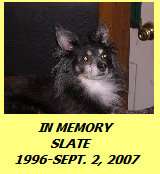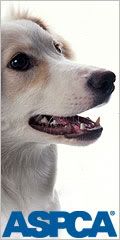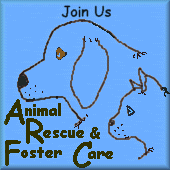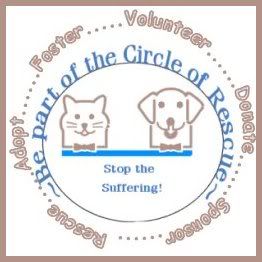Since Chrissy had posted about the dangers of feeding dogs grapes over at her blog, I thought that I'd post this new article by the ASPCA. It's about some of the common toxins to pets found in homes. I hope it's helpful! Everyone have a great weekend!
Poison-Proof Your Pet's HomeDid you know that many substances commonly found in and around your home can be potentially dangerous to your animal companions? Here are some items to watch out for as you poison-proof your pet's home.
Non-toxic substances for dogs and cats: Here are a few substances are considered to be non-toxic, although they may cause mild gastrointestinal upset in some animals.
Water based paints
Toilet bowl water
Silica gel
Poinsettia
Cat litter
Glue traps
Glow jewelry
Christmas tree water
Foods to Avoid Feeding to Your Pet
Alcoholic beverages
Avocado
Chocolate (all forms of chocolate)
Coffee (all forms of coffee)
Fatty foods
Macadamia nuts
Moldy or spoiled foods
Onions, onion powder
Raisins and grapes
Salt
Yeast dough
Garlic
Products sweetened with xylitol
Warm Weather Hazards
Animal toxins - toads, insects, spiders, snakes and scorpions
Blue-green algae in ponds
Citronella candles
Cocoa mulch
Compost piles
Fertilizers
Flea products Outdoor plants and plant bulbs
Swimming pool treatment supplies
Pesticide Hazards
When using herbicides or insecticides in or around you home:
Always use pesticides in accordance with label instructions. Keep pets away from treated areas for the label recommended amount of time. Store unused products in areas that will always be inaccessible to pets. Be aware that fly baits containing methomyl and slug and snail baits containing metaldehyde are particularly dangerous.
Medication Precautions
Keep all prescriptions and over-the-counter drugs out of the reach of your pets, preferably in closed cabinets. Remind guests to store their medications safely as well. Pain killers, cold medicines, anti-cancer drugs, antidepressants, vitamins, and diet pills are common examples of human medication that could be potentially lethal even in small dosages. One regular-strength ibuprofen tablet (200mg) can cause stomach ulcers in a 10-pound dog.
Cold Weather Hazards
Antifreeze: If you think your pet has consumed antifreeze, contact your veterinarian right away.
Liquid potpourris: Exposure to some types of liquid potpourris can result in severe oral, dermal and ocular damage.
Ice melting products can be irritating to skin and mouth.
Rat and mouse bait - place these products in areas that are inaccessible to your companion animals.
Christmas Tree Hazards
Christmas tree water may contain fertilizers, which, if ingested, can upset the stomach. Stagnant tree water can be breeding grounds for bacteria, which can also lead to vomiting, nausea, and diarrhea, if ingested.
Electrical cords - Avoid animal exposure to electrical cords. If they are chewed they could electrocute your pet. Cover up or hide electrical cords and never let your pet chew on them.
Ribbons or tinsel can become lodged in the intestines and cause intestinal obstruction. This is a very common situation for kittens!
Batteries contain corrosives, and if ingested they can cause ulceration to the mouth, tongue, and the rest of the gastrointestinal tract.
Glass ornaments can cause internal laceration when ingested.



























1 comment:
OHHH, those pesky winter pounds... We have been walking them off here. It would be nicer it it would STOP RAINING on my days OFFF????!!!!! Lunch with you guys sounds like an experience in itslef.
ann
http://www.mymuddymess.com/blosxom.pl
Post a Comment